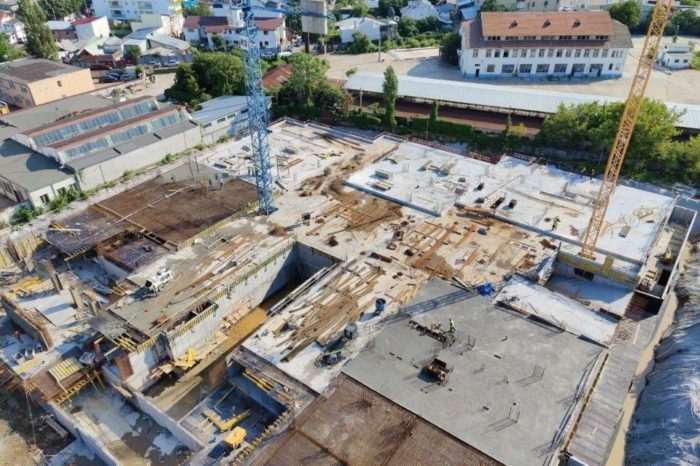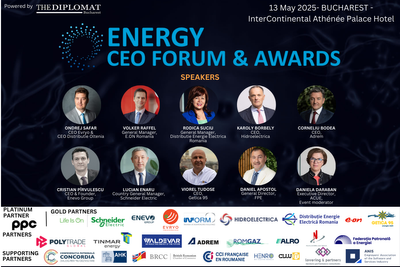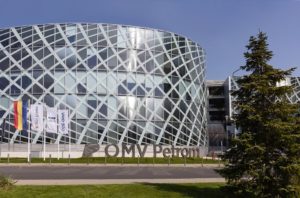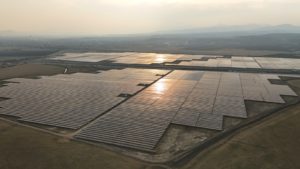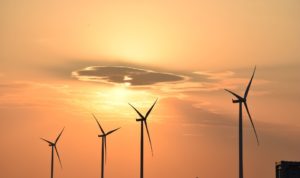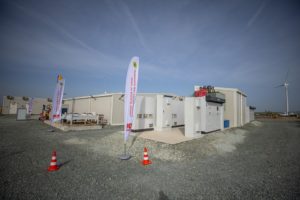Zoltan Nagy-Bege, ANRE: “The full liberalization of the electricity and natural gas markets is probably the most important milestone on the Romanian energy markets in the last decade”
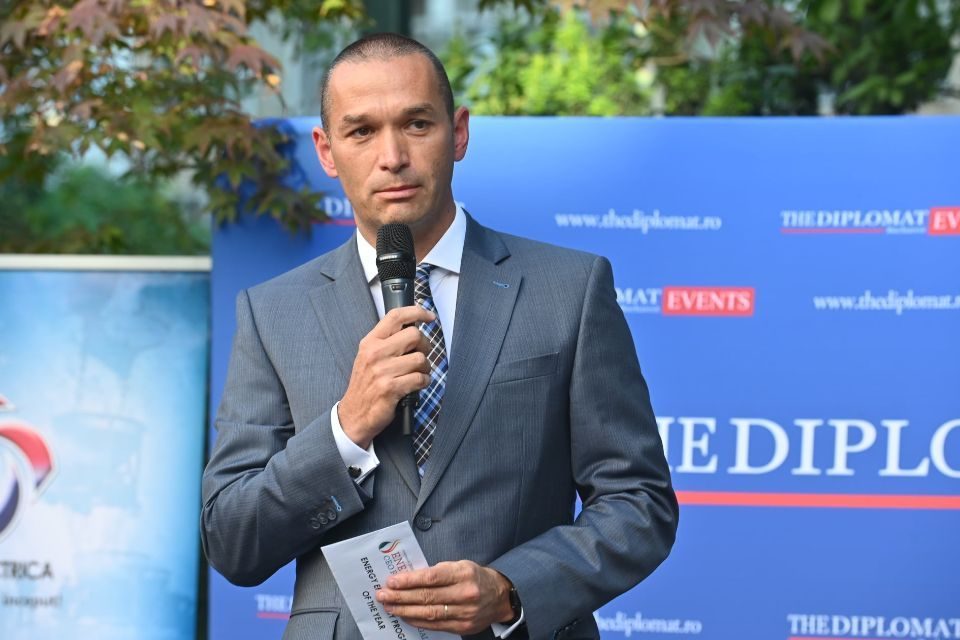
“The full liberalization of the electricity and natural gas markets is probably the most important milestone on the Romanian energy markets in the last decade, which is expected to have positive effects in medium and long term,” Zoltan Nagy-Bege, vice-president ANRE (Romanian Energy Regulatory Authority) told The Diplomat-Bucharest.
“The liberalization should attract besides new competitors as suppliers, new production capacities as well, especially taking into account the opportunities offered by the EU Green Deal, and the obligations Romania has for 2030 and 2050 in terms of renewables and carbon neutrality. (…) In the medium and long term, the benefits of market liberalization will be reflected in an increased level of competition between suppliers, entering new suppliers, diversifying supply offers at competitive prices, stimulating investment in electricity production and increasing energy production, all these contributing substantially to ensure the market stability and security of supply.”
How would you describe the energy market development in 2020?
I am sure we all agree with the fact that the year 2020 was a year of great challenges also for the energy market. It made us face unpredictable situations, which required a quick reaction over the identification of the best solutions, in order to manage the problems, arise with this difficult and completely unexpected context.
The global pandemic has led to different behaviour in the market, with consequences felt among both categories – consumers and operators. If by the end of 2019 we, as Energy Market Regulator, were talking about ambitious steps to be taken in 2020, such as – the preparation of a favourable framework for a fully liberalized and functional market (targeting both the wholesale market segment and the retail segment), the support in increasing the market competition by applying EU Regulation 943 of 2019 on the internal electricity market or total institutional support for intensifying investments in the sector – the challenges posed by the pandemic crisis have proved to be a serious obstacle in meeting the best results in reaching the projections for 2020. I am not saying that the problems that arose have not been managed or that there has been no progress registered. On the contrary. This context further tested our ability to get results in difficult conditions.
The liberalization of the energy market overlapped with the Coronavirus crisis, which, in addition to causing a considerable reduction in consumption, also reduced the ability to pay the electricity bills by certain categories of consumers. Giving this situation, under certain laws, some consumers have been exempted from paying their bills. This was a reason strong enough so as the suppliers’ revenues to be affected, which generated a lower capacity to compete in the liberalized market. This measure was taken at the executive level and it was issued without previous consultation, which, in addition to contradicting in some points the spirit of the relevant European legislation in the field, it generated negative effects. More exactly, the price capping measure is rather suitable to be applied to the final price for consumers, than to the wholesale market. As we all know Romania is connected on DAM and intraday market, so that such a measure is very difficult to find its place in this context.
The energy field needs capital infusion. The implementation of the capping prices measure, brought the suppliers in the situation where they were unable to collect amounts, being obliged at the same time to do their payments to the distributors and to other partners. However, I do not want to become a critic of the set of rules issued by the executive or to be a kind of “lawyer” of the operators or the consumers. What I would like to underline is the need of the stability and consistency in measures which are being taken.
By issuing the secondary legislation, ANRE aimed to comply with the provisions of the European legislative framework, with all the obligations arising from them. The Authority gave signals repeatedly, both to all state institutions and to the market participants, to express openness to dialogue, including an institutional involvement in developing the set of rules required by the pandemic context. The purpose of this positioning was also to reduce the impact of those severe measures, so that they do not significantly affect either the final consumer or the suppliers. In my view, the importance of maintaining a balance, by protecting the final consumers, while ensuring predictability for the operators and investors through creating a coherent legislative framework remains one of the pillars for ensuring a fully functional market, with benefits for us all.
The full liberalization of the electricity and natural gas markets is probably the most important milestone on the Romanian energy markets in the last decade, which is expected to have positive effects in medium and long term.
The liberalization should attract besides new competitors as suppliers, new production capacities as well, especially taking into account the opportunities offered by the EU Green Deal, and the obligations Romania has for 2030 and 2050 in terms of renewables and carbon neutrality.
What measures have been taken by ANRE in order to inform consumers about the liberalization of the electricity market?
In terms of landmark for ANRE’s legal framework to inform the consumers, the regulator has obligations strictly related to increasing the degree of information. In other words, one of the main ANRE’s role is to prepare, by issuing through the secondary legislation, the framework for suppliers to inform the final consumers. Thus, ANRE has ruled through the secondary legislation incident in the field, concrete obligations for suppliers regarding the ways of informing the final consumers.
By Order of the President of ANRE no. 171/2020, the last resort suppliers had the obligation to send to the final consumers of their own portfolios, in the period October – December 2020, information regarding the liberalization of the electricity market. Moreover, also based on ANRE’s regulations, throughout 2021 the last resort suppliers have the obligation to inform their final consumers benefiting from universal service, regarding their applicable competitive offers and about the right to conclude a contract on the competitive market, with any other licensed supplier.
Through the amendments brought by the Order of the President of ANRE no. 5/2021 in order to carry out the activity of informing the final consumers, ANRE provided a new obligation for the last resort suppliers, to send to the final consumers from their own portfolios, enclosed to each invoice issued until June 30th 2021, an information regarding the elimination of the regulated prices, respectively an offer selection form, which has the role of simplifying the process of concluding contracts. The offer selection form is a good way to choose a supply offer from the competitive market, for that category of consumers with no internet access. The above-mentioned form must contain the lowest offer of the supplier from the competitive market, an alternative competitive offer, and the offer for the universal service (offers applicable in the first semester of 2021), as well as the amount of the commercial reduction granted and the period of application.
At the same time, the Order of the President of ANRE no. 5/2021 stipulates that the suppliers have the obligation that, from May 1st to June 30th, 2021 and with each invoice issued in the second semester of 2021, to send to the consumers of their portfolios, information accompanied by a competitive offer and the universal service offer, applicable from 1st of July 2021.
Through an another ANRE’s regulation, the electricity suppliers had and still have the obligation to issue invoices containing correct, transparent, clear, complete, legible, and easy to understand information, which would offer to the final consumers the opportunity to adjust their own consumption and to compare the commercial conditions of electricity supply (Regulation for the supply of electricity to final consumers, approved by the Order of the President of ANRE no. 235/2019).
The Comparator of standard-offers for electricity supply, available on the ANRE’s website, a very important and useful tool in identifying a supply offer was also a result of an ANRE regulation (Order of the President of ANRE No. 189/2018 on the obligation to inform the final consumers through the computer application “Comparator of standard-offers for electricity supply”).
Regarding the Comparators – here I also refer to the Comparator of standard-offers for natural gas” – I must mention that ANRE has constantly made improvements to these two applications, a good example being the simplification of the process of obtaining the documents necessary to conclude a supply contract, this set of documents being available to be downloaded directly from the list of results obtained after performing the comparative analysis with the Comparators.
In addition to ensuring the secondary legislation related to the market liberalization and in order to inform the final consumers about the options they have in the process of their transition from the regulated market to the competitive market, ANRE provided periodically in 2020 informative materials related to this topic, press release and other essential information for the final consumers. As well, ANRE has an ongoing partnership with The National Association for Consumer Protection – INFOCONS on the dissemination of relevant recommendations for the final consumers, through informative leaflets which are displayed at the contact points of several institutions throughout the country. This informative material is also displayed, and it can be consulted on the ANRE website – www.anre.ro.
In compliance with the legal provisions, through the Call-Center telephone line 0374 554 265, ANRE disseminated practical information to the interested final consumers, related to the effects of market liberalization, the process of choosing an optimal supply offer or the ways in finding solutions regarding the signing of a new contract.
Speaking about negative effects caused by the COVID-19 pandemic, due to reasons related to the compliance with the health rules imposed by this situation, the activity of informing consumers through door-to-door informative campaigns could not be achieved. This also has had a say in the lack of knowledge of information on liberalization, among those consumers without internet access, for example.
ANRE will continue in the next period to make available on its website www.anre.ro, useful informative materials for the final consumers, simultaneously with the maintenance of other means of interaction (call center lines, e-mail) which will remain available to all those interested in obtaining information for further clarification regarding the choices in reaching the best supply offer.
What are the most frequently asked questions from consumers about market liberalization?
Most of the questions received both by e-mail /through written correspondence and on the ANRE specific Call-Center telephone line, came from the category of consumers without internet access. The information provided by our specialists was mainly on the ways of obtaining supply contract offers, the telephone numbers of the suppliers’ call-centers for requesting supply offers or on the ways of using the Comparators. Other calls concerned requests for general information on market liberalization, or the significance of each component on the electricity bill.
Besides providing answers to the final consumer’s questions and in order to make available to all those interested in being informed with news related to market liberalization, the interaction with the final consumers through e-mail or by phone, represents another tool that ANRE uses effectively in shaping its messages and the informative materials.
What benefits should the elimination of regulated tariffs in the electricity market bring?
In the medium and long term, the benefits of market liberalization will be reflected in an increased level of competition between suppliers, entering new suppliers, diversifying supply offers at competitive prices, stimulating investment in electricity production and increasing energy production, all these contributing substantially to ensure the market stability and security of supply.
Once with the market liberalization, the suppliers’ price offers will diversify and they will be adapted to the consumer’s needs, as competition is an incentive that encourages companies to act to their full potential to provide quality and affordable services. The market liberalization must be seen as an advantage for the entire energy market because this process will mature the market in a competitive way, will bring benefits for both suppliers and consumers, who have the opportunity to actively participate in this process. Somehow this active participation of the final consumers is already possible, by the fact that they have the opportunity to choose their supplier and directly negotiate their terms and price for the electricity supply.
In other words, the market liberalization will also lead to accountability of the final consumers for the decisions they take regarding the supply conditions and the price paid for it, this awareness raising process being also helpful in creating a stronger competitive environment.
How do you see the energy market evolve in 2021?
In our efforts to apply the EU Regulation 943/2019 regarding the internal electricity market, we managed to make a courageous step that makes us to be in front of other more evolved European electricity markets: from 2021 February 1st we implemented the single price rule and the 15 minutes settlement period on the balancing market. It is an important measure, which is compliant with the European Regulations and Directives, and it prepares our electricity market to be more flexible in integrating new production capacities, especially renewable power plants. Hopefully, the market will confirm that it was the right choice and with the effort of all market participants, soon we will see the benefits of this measure.
Going forward, I hope 2021 will bring us the first investments in new clean production capacities in Romania’s way to meet the 2030 targets and to a carbon neutral energy sector in 2050. Gas power plants, photovoltaic power plants, wind power plants are expected to be build or at least to be started this year, and the reason I hope there will be significant improvements in this matter is the long-waited possibility to conclude bilateral contracts or PPAs. It is one of the first questions asked by any investor interested to invest in Romania in production capacities, and we have already addressed this concern in 2020, by defining the long-term electricity contracts (which are allowed by EU Regulation 943/2019 to be negotiated over the counter) as contracts concluded for a period longer than one year. We are in the debate period to amend that definition to shorten the period (to one month or even shorter). Allowing PPAs and bilateral contracts we are actually unblocking investment in production capacities, for which since 2012, the moment when it was approved the Electricity and Natural Gas Law by the Parliament, there was no chance to get financing.
A big question mark is of course, the Covid19 pandemic. The pandemic and the possible restrictions will have a visible effect on the 2021 energy market. If the pandemic can be controlled by the authorities, and the economy starts to revive, Romania has a good chance to recover fast, obviously with the help of the EU, using the financing mechanisms of the Green Deal or the Recovery and Resilience Plan. That fast recovery surely will have a positive effect on the energy markets as well.
What are your priorities for this year?
Monitoring the household markets after the liberalization is one of the top priorities of the regulator, in order to identify and combat any problem that could arise in this process. Hopefully, in 2021 all the developments will be consolidated, and the majority of the household consumers will be well informed and able to take substantial decisions.
We have another very important subject to address, with huge possible impact on millions of gas and electricity consumers: the obligation of the distributors to connect free of charge the household consumers and the industrial consumers, which are closer than 2500 m to the grids.
This obligation is given by the latest amendment to the Electricity and Natural Gas Law no. 123/2012, and we can already notice the upward trend in terms of requests for connection registered by the distributors (both electricity and natural gas), which is 7-8 times higher in the first two months of 2021, compared with the similar period of 2020. Definitely, this is coming to solve a problem which is unsolved for years, the long lasting and expensive connection to the grids, being at the same time a challenge for the distributors to face such high number of request, to identify the source of financing for those investments, to find the proper human resources to design and build those connections, and for the regulator as well, because all these new investments have to be recognized and integrated in the distribution tariffs.
Beside these, my first priority for 2021 is to stay healthy, me and everyone around me, while remaining confident in the idea that this year we will see at least the signs how this pandemic will be stopped.



